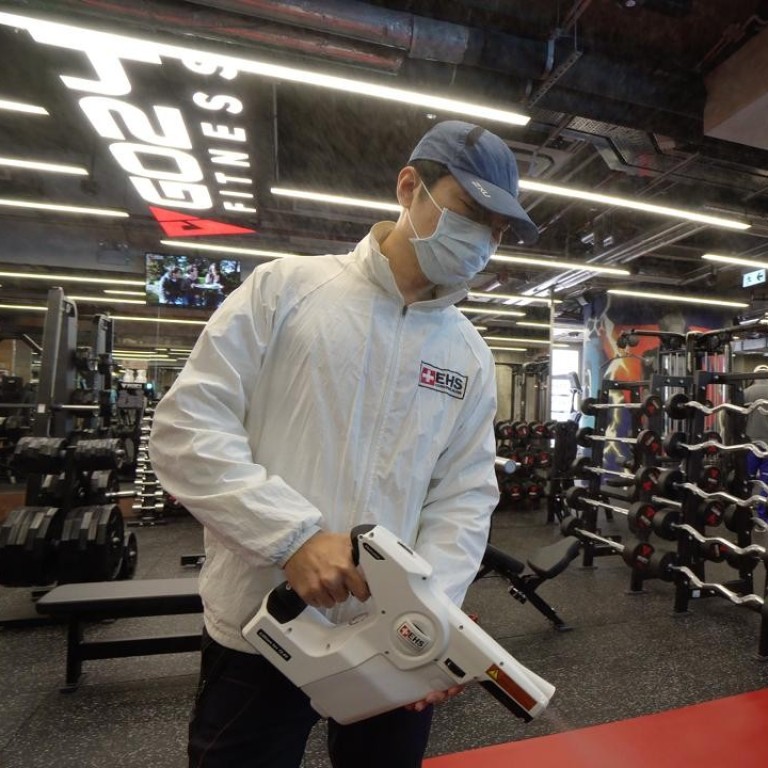
What gyms are doing to reassure users amid coronavirus pandemic, and why doctor advises exercising at home
- From stepped-up cleaning to enforcing personal hygiene, Hong Kong gyms have adapted to the coronavirus, and more members are working out again
- A doctor of respiratory medicine says it’s best to exercise alone at home, but an infectious disease specialist says if you are mindful you can still use gyms
Gym attendance saw a dip at the beginning of the outbreak, but Nathan Solia, managing director of Elite Personal Training Studio in Wong Chuk Hang, says clients have begun returning to exercise, especially younger people.
“Because it’s a virus, people are afraid of being affected by someone else if they are sweating or breathing over people in a dense place, but we’re lucky we are small … in our case we have only one, two or six people at a time [using our gym],” he says.
At GO24 Fitness, a round-the-clock gym with multiple locations across Hong Kong, everyone gets a temperature check on entering. Working in shifts, cleaners sanitise the venues from 6am to 10pm, and a third-party company deeply disinfects the premises weekly. Fitness director Martin Barr says: “We are doing everything within our power to create a clean and safe environment for them to train in.”
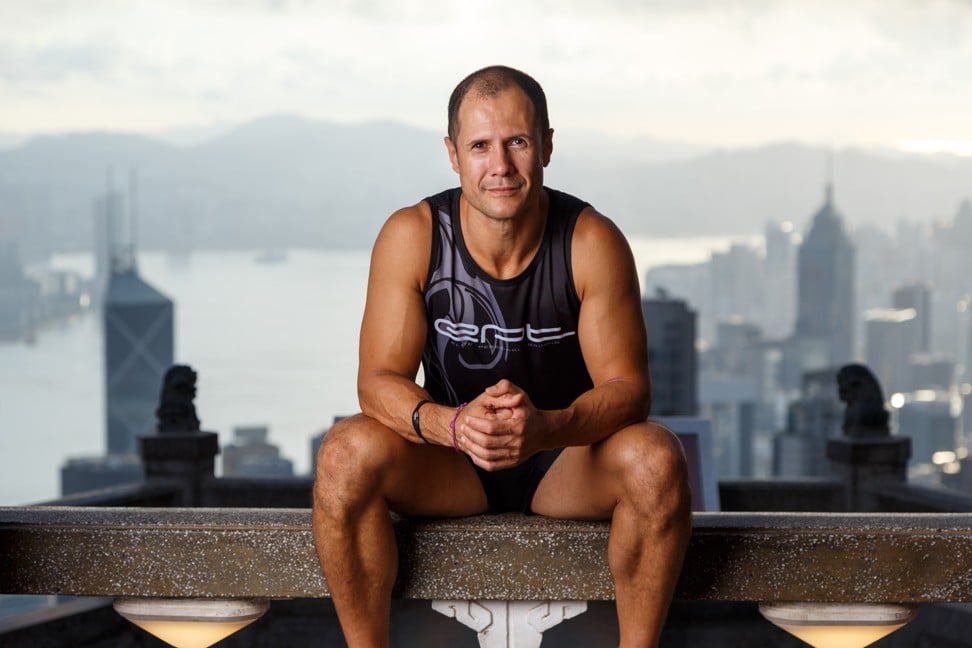
At Fitness Bee in Causeway Bay, which offers yoga and other activities, everyone has been advised to wear a face mask in class.
At Flex Studio, which specialises in Pilates and offers fitness classes, sanitation protocols and personal hygiene practices have gone up a notch. “We are enforcing hand washing upon entering the studios, with hand sanitisers available for use at the front desk,” say the company.
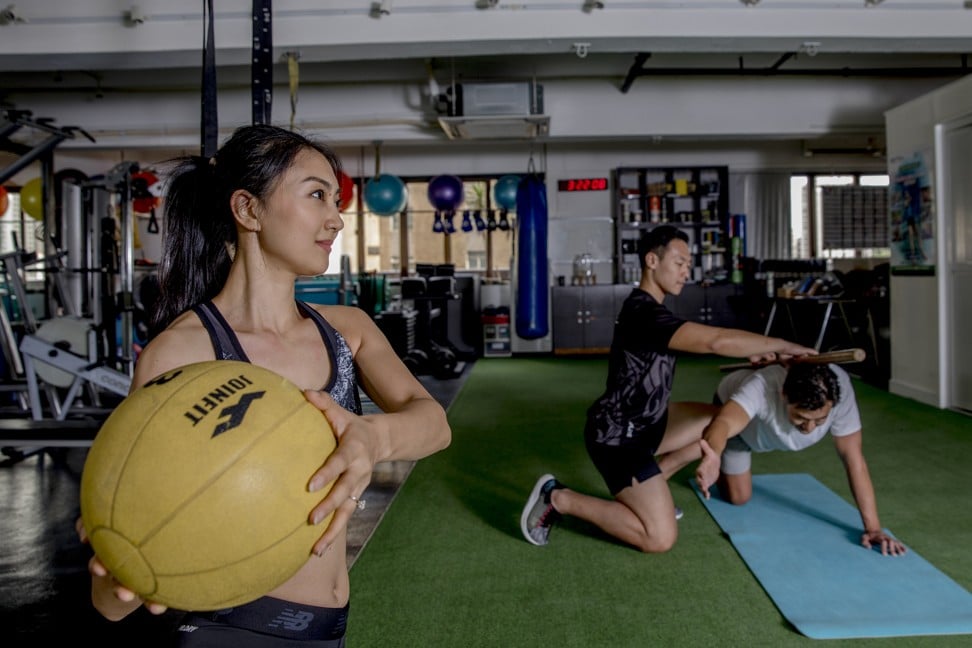
“While we don’t argue that staying home might be good to avoid getting infected, we advocate other more proactive ways to keeping healthy in light of the coronavirus,” said a Flex spokeswoman on its decision to keep its studios in Wong Chuk Hang and Central open for business.
Gym operators are asking their clients, and staff, to stay home if they feel unwell.
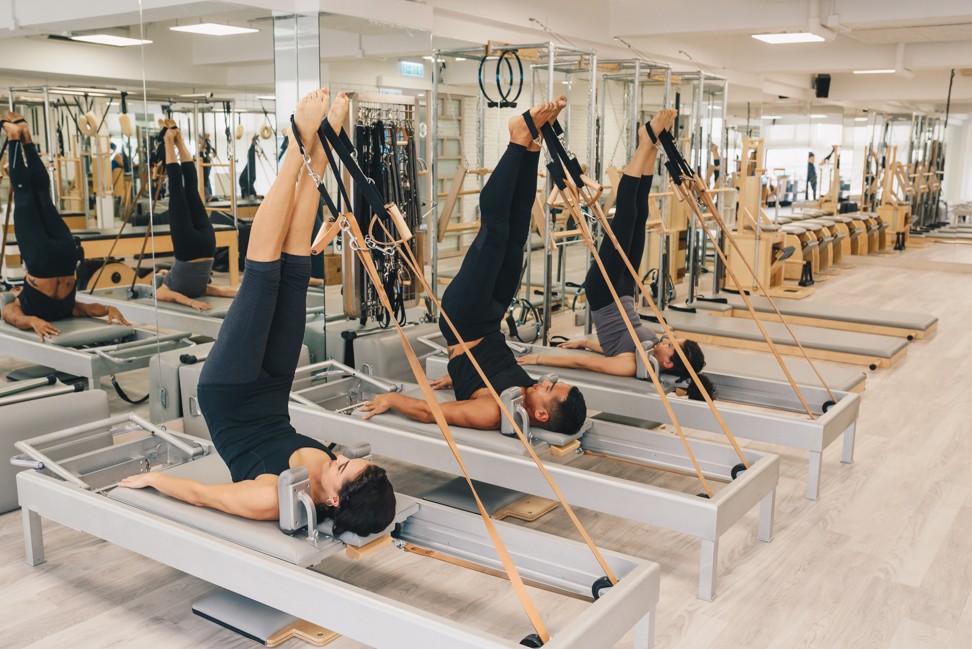
The founder’s motto is to help “keep Hong Kong strong” – which is why the gym remains open. I’m not going to close the doors and deny people the ability to exercise, because I know exercise strengthens our body and builds a better immune system,” says Solia.
“If you are stronger and get infected by something, you will fight it off more effectively than someone who is not.”
The months of social unrest that preceded the outbreak had already had a negative impact on businesses in Hong Kong, including gyms. The health crisis was the tipping point for some. The Studio by Jab in Central announced it was closing down as of March 15, and it stopped its fitness classes in mid-February.
“Conditions in Hong Kong over the past six months have meant we are unable to continue operating. This brings us to an end of a very memorable and wonderful 15 plus year journey for us,” it stated on its Facebook page.

Doctor cautions against group exercise, wearing N95 mask
There is not enough good data on the relationship between exercise and the transmission of the coronavirus, says Dr Leung Chi-chiu, a respiratory medicine specialist and chairman of the Hong Kong Medical Association’s advisory committee on communicable diseases. He advises people who are keen to exercise to do it at home.
Leung says exercise does help – but only if you have been doing it regularly. “If you take it up at this moment to fight this epidemic … it would be too late to be useful,” Leung says.
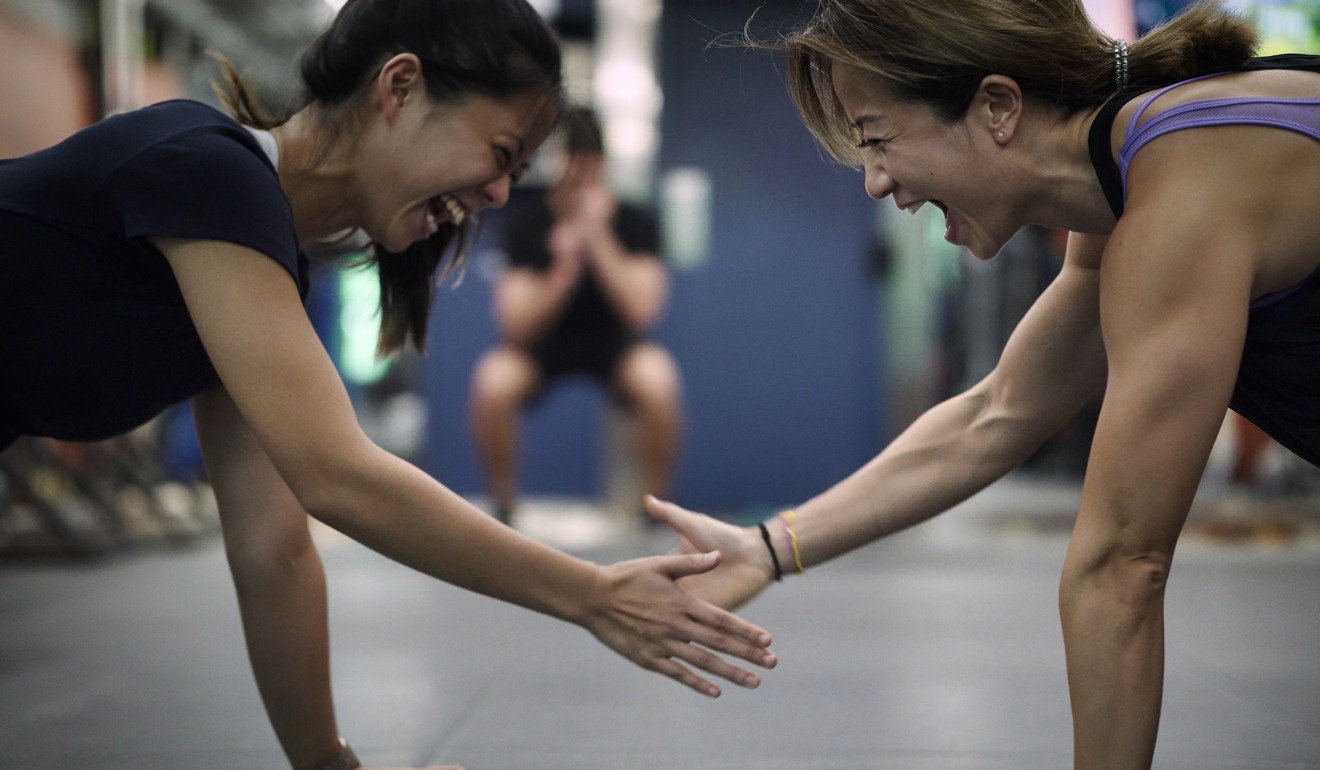
Those wearing masks while exercising may encounter air resistance due to the filter design, which varies between brands. “If you have an underlying lung disease, consult a doctor to see if you can exercise with a mask,” he advises.
Most surgical masks should be tolerable for most users, though he advises against using the N95 respirator type, as its highly efficient air filter system may make it difficult to breathe. “It’s for guarding against harmful particles in an industrial setting, not for gym purposes.”
He adds: “If you wear a surgical mask and it makes you feel uncomfortable or feel stress, slow down or, if necessary, stop.”
Pay attention to what you touch, carry an extra towel
Fitness centres in the United States are also telling members about coronavirus prevention measures. Most include encouragement to stay at home if they are feeling sick and asking members to be more vigilant about disinfecting efforts.
Members are being asked to do their part, too.
John Zurlo, who works in the infectious disease division of US care network Jefferson Health, shares tips on how to dodge germs at the gym. Topping the list: keep your hands away from your face.

“If you touch a surface where someone has sneezed, like a gym bench, and then rub your eye with your little finger, the virus could spread,” says Zurlo. “Our nose, mouth, and eyes have mucus membranes, and this is where respiratory infections like the coronavirus and the flu enter into the body.”
Cue towels. Carry two with you – one to spread across each machine and one to wipe sweat from your face. Remember to remain conscious of what surfaces the fabric touches, and which sections are still clean. If needed, toss your towel mid-workout in exchange for a new one.
Tissues work as barriers, too, and are especially useful in situations where a towel might feel clunky. Need to adjust sweaty glasses or scratch an itchy nose? Those are prime jobs for a Kleenex.
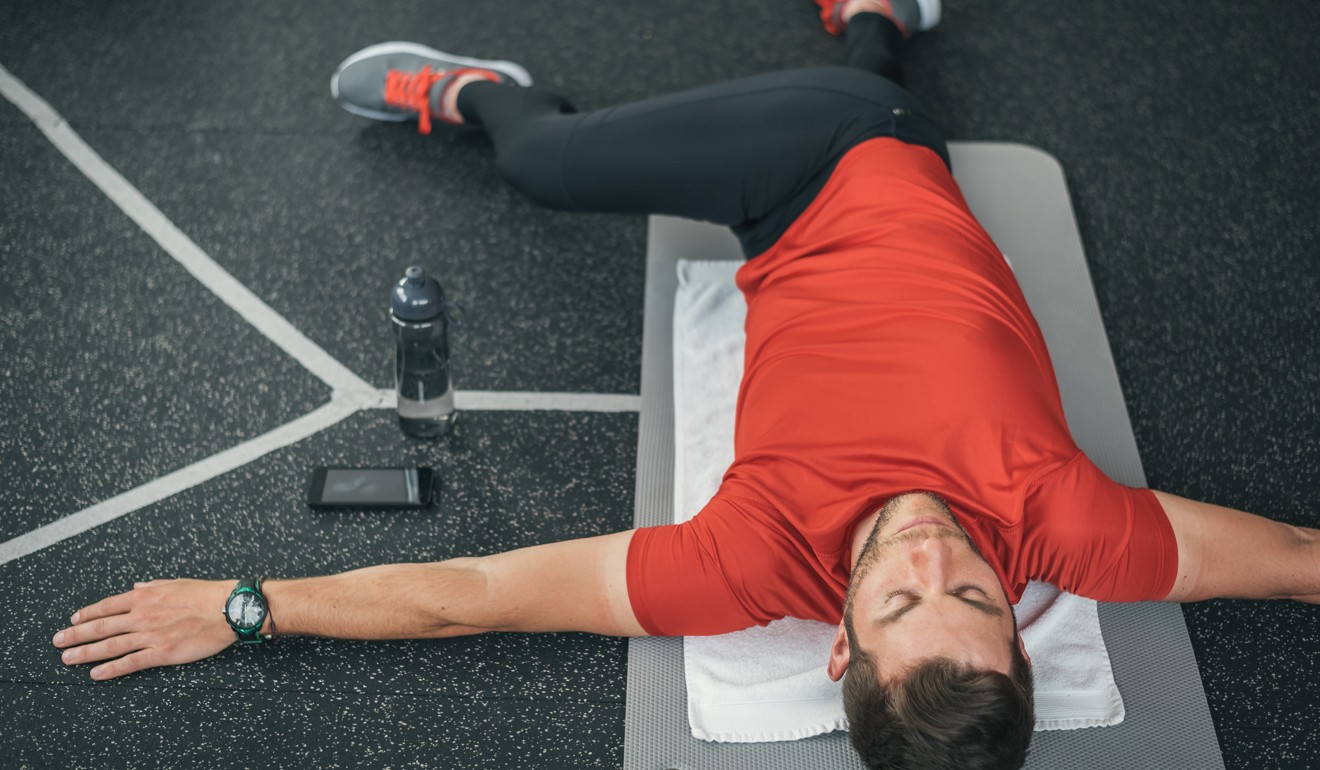
Likewise, grab a tissue or paper towel to avoid hand contact with water fountain handles. And when you go in for a drink, do so with care.
“It seems like common sense, but try not to touch your cheek to any part of the metal on the water fountain,” says Zurlo. “You could also let the water run for a few seconds.”
Since running to the bathroom sink in between every gym machine isn’t realistic, Zurlo suggests using water breaks as reminders to get those hands clean.
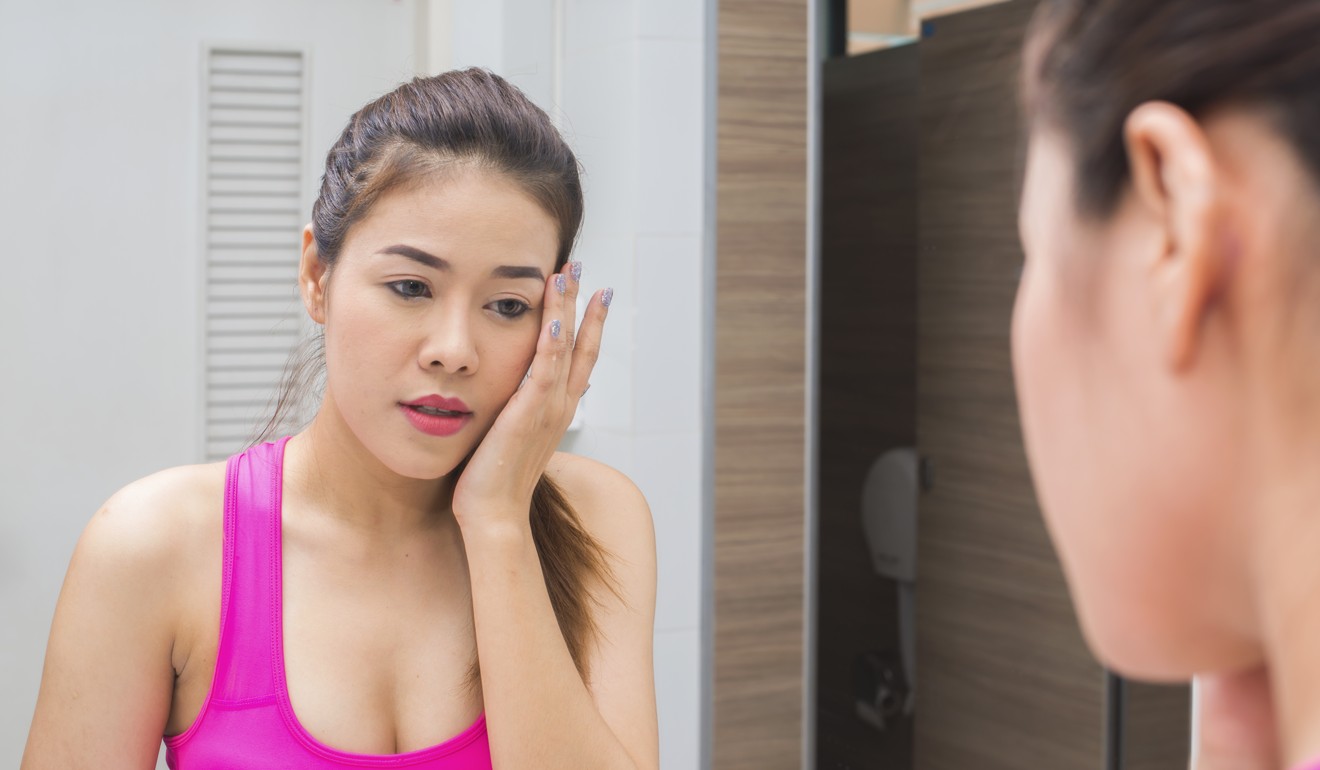
“Probably more so than the soap, rinsing for the full 20 seconds is crucial,” says Zurlo of handwashing.
Twenty seconds: it’s roughly the amount of time it takes to sing Happy Birthday twice.
Hand sanitiser is also handy, and with the coronavirus of concern, Zurlo says you needn’t be too concerned about how often you’re using it.

“In medicine, every time we walk into a patient room, we use hand sanitiser, and when we walk out of the room we use it again – so for physicians, sometimes that means 40, 50, 60 times a day,” says Zurlo. “In my personal life, I’m not using it all the time, but I don’t know if I’d set any limit at the gym.”
Use enough to cover every part of your hands, including rings. And as with the hand sanitiser, use sanitising wipes regularly, too.
“It’s good gym etiquette to wipe down machines after you use them,” notes Zurlo. “It’s a big step to also be wiping down every machine before use, but at this point I can’t see a downside to it.”
Ultimately, how to navigate the gym comes down to awareness. To prevent injury, you have to pay attention to form. To prevent sickness, you have to pay attention to what you touch.
Being aware of those around you is important, too, says Zurlo. If someone’s coughing, move.
But as long as you remain mindful, Zurlo says, there’s no need to fear going to the gym, at least for now.
Additional reporting by Associated Press

